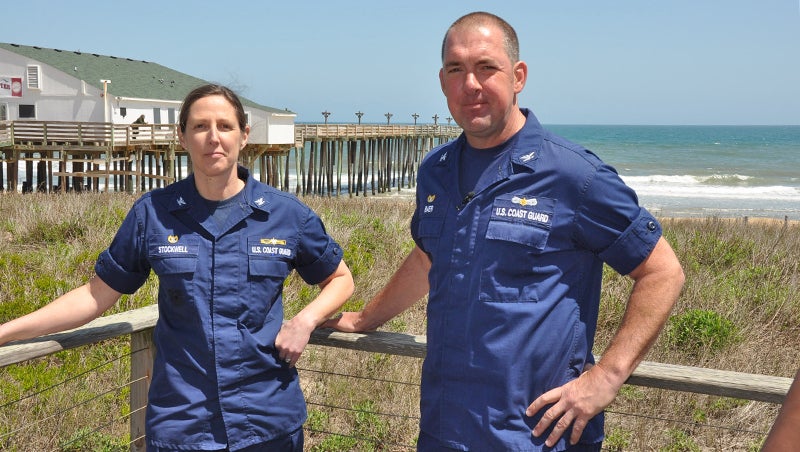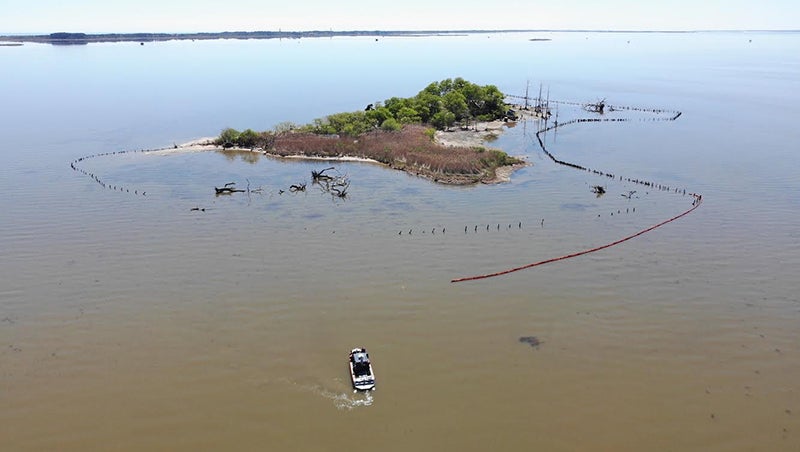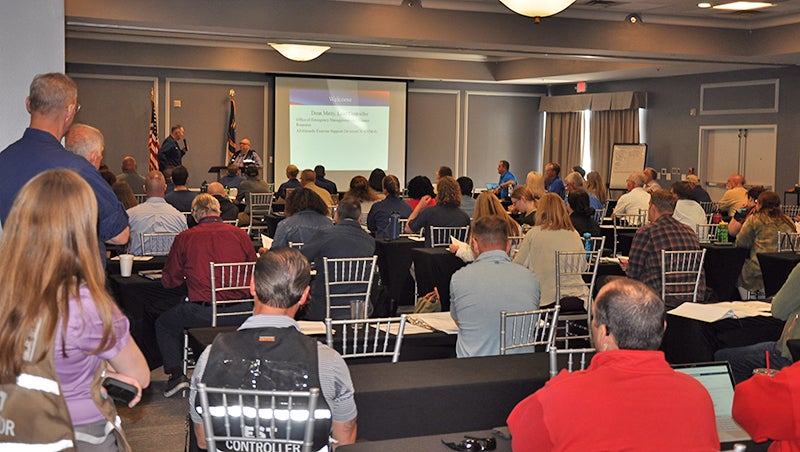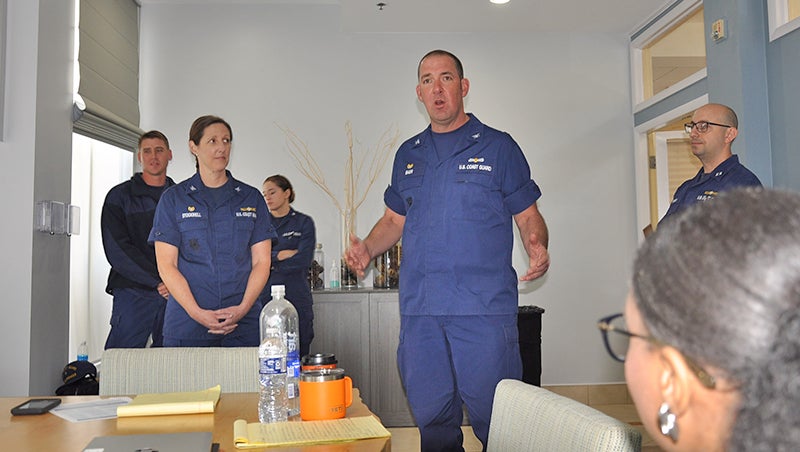Oil spill preparation exercise tests, strengthens inter-agency cooperation
Published 9:17 am Saturday, April 29, 2023
|
Getting your Trinity Audio player ready...
|
More than 100 people from some 45 federal, state and local agencies were in Kitty Hawk last week for a joint oil spill preparation exercise.
With the Coast Guard acting as the lead agency, the two day exercise was an opportunity to test and strengthen inter-agency cooperation to a hypothetical major maritime incident in which a vessel collision with a submerged object released 226,800 gallons of heavy oil approximately 30 miles off the North Carolina/Virginia coast.
“Oil doesn’t care that there is a state line,” said Captain Matthew J. Baer, the Coast Guard sector commander and federal scene coordinator for the state of North Carolina. “It doesn’t care that there are two different sectors and it doesn’t care what county or town it’s in. It’s going to go ashore based on the environmental conditions.”
Baer went on to say that since the 1989 Exxon Valdez incident in Alaska that dumped 11 million gallons of oil into Prince William Sound there has been a lot of legislation related to oil transportation, spill cleanup and incident preparation.
“This is part of a federal program to do this every four years,” added Coast Guard Captain Jennifer Stockwell, commander of Sector Virginia. “It’s a full scale exercise where we get equipment wet and dirty, we have people on site working hands-on for an oil spill exercise. The location changes, the scenario changes, and sometimes the people change as well, but it is mandated for us to do this every four years and how we would respond.”
Stockwell then explained that for the exercises officials select an actual vessel, get with the owners, look at the capacity, and develop an incident requiring a response.
“Then we actually pretend the event is happening,” Stockwell continued. “And we repeat the exercises because over the years things change. People change, including myself, so it’s important to understand who is participating, but also the environment changes.”
Stockwell then added that continued practice is needed because over time the plan changes.
“We learn from past events and get smarter so this type exercise allows us to update the plan,” she concluded.
During a meeting with reporters on Wednesday, April 19, 2023, Baer and Stockwell explained that during a morning seminar setting participants talked about resources, capabilities, decision making and provided an opportunity for everybody to voice any primary concerns.
Simulating all the events of an actual spill, participating agencies have an opportunity to learn first hand what agency resources, capabilities and concerns might be in order to collaborate on how to prevent oil from reaching any North Carolina or Virginia beaches.
A major part of the exercise is implementing a system to detect, investigate and respond to incidents in as little time as possible.
Officially called The Incident Command System, ICS was initially developed in the late 1960s to overcome inter-agency issues during responses to California and Arizona wildfires with a management hierarchy similar to that of the US Navy with individual participants reporting to only one supervisor.
The four main parts include:
● Planning, to create an incident action plan,
● Operations, which performs the activities important to accomplishing incident objectives,
● Logistics, in charge of requesting and demobilizing resources,
● Finance/administration, to take care of any administrative needs and work on getting any funding needed for an incident.
Although the Coast Guard is responsible for response, Kill Devil Hills Fire Chief Troy Tilley said as liaison representing the Town of Kill Devil Hills, he thought the exercise was an excellent opportunity to come together and work with federal partners to see how they would respond to an event of this nature and how we could come together to solve these types of problems.
“It was a chance to learn and participate,” said Tilley. “It’s not like we have many types of these events, and heaven forbid we do have. But knowing your federal partners and that they have the ability to come together to plan and respond to one is valuable. Certainly, these types of events are not routine. They might be for some of the upper leadership in the Coast Guard, but it’s not something we deal with on a regular basis. Just knowing you have them prepared to face one of these challenges down the road is very reassuring.”
SUBSCRIBE TO THE COASTLAND TIMES TODAY!










